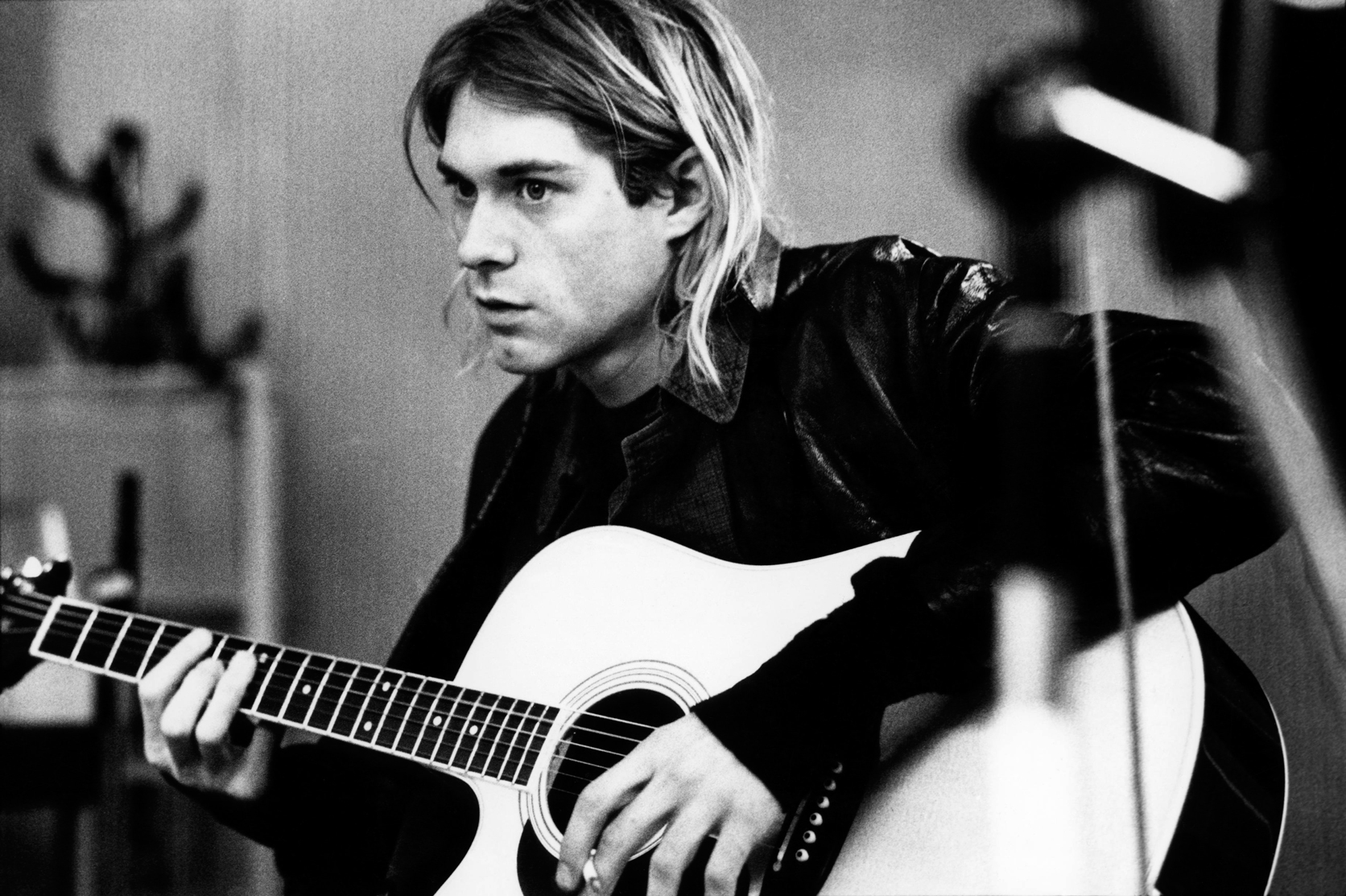Kurt Cobain’s (Sort Of) New Album is a Rare, Intimate Look Inside His Mind
About a half hour into Montage of Heck, Brett Morgen’s controversial HBO documentary on Kurt Cobain, the camera idles on a note scrawled by the era-defining Nirvana frontman. “Don’t read my diary when I’m gone,” he writes. Then, just below it: “Please read my diary. Look through my things, and figure me out.”
Twenty-one years after Cobain’s suicide, we’re still trying to decode that contradiction. As with anyone who dies too soon, there’s a cottage industry devoted to plumbing every last corner of the grunge martyr’s personal archives for more insight into his life and death. The latest relic to be unearthed: Montage of Heck: The Home Recordings, a sprawling collection of personal demos recorded by Cobain, released as a companion piece to Morgen’s documentary. But for all the tortured artist mythmaking behind most posthumous Nirvana commodities, this soundtrack gives us something rare: an unfiltered glimpse at Kurt Cobain, the dude, in his interior space.
For the voice of a generation, Cobain was remarkably inscrutable — or at least he was on MTV. A scraggly punk who seemingly loathed his status as the world’s biggest rock star, his lyrics were cryptic, his music videos abstract, his interview responses either defiantly blasé or completely full of shit. But on these 31 salvaged tracks, we bear witness to the man behind the stringy mop, sitting in his Olympia, Washington apartment in the late ‘80s, creating the music that would thwart the course of pop culture over the next decade.
The first thing you notice: Kurt was actually a pretty funny guy. Half the album consists of jokey jingles (“The Yodel Song”), bizarre sonic collages (“Montage of Kurt”) and absurd skits (“1988 Capitol Lake Jam Commercial”) showcasing his oft-overlooked irreverent sense of humour. It’s oddly humanizing, given that his drug addiction and violent death tend to permeate any discussions of his legacy.
Of course, there are songs here, too. Great ones. On a haunting, folk-tinged ode to his daughter, “Letters to Frances,” we hear Kurt’s seldom-explored tender side. The hooky jangle-crunch of “Desire” sounds like the FM radio rock anthem that never was. “Burn the Rain,” with its minor chord changes and downbeat melodies, sees Cobain flex an ethereal muscle we’ve never heard before — until a phone call interrupts him. These are the workings of a relentlessly creative mind, and, had his life not been interrupted, they easily could have been the sounds of Nirvana’s fourth album.
The starkest moment of The Home Recordings is “Aberdeen,” a spoken word piece in which Cobain reveals an awkward sexual encounter with a mentally disabled woman, which then leads to his first suicide attempt. He sounds so intimately earnest — the usual snark gone from his voice — that it almost feels uncomfortable to listen to. Then again, it also strangely feels like he wanted someone to stumble upon it. Is he telling the truth or just yanking our leg? It’s impossible to know, and maybe that’s why we’re so endlessly infatuated with Kurt. We desperately want to get inside his head, but no matter how many photos, journal entries and tapes we decipher, there’s something in the way.










